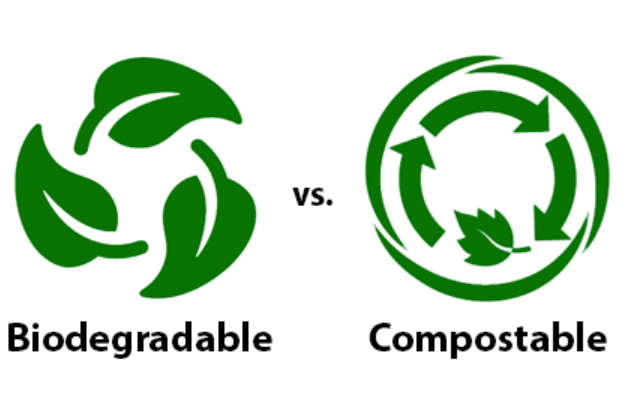In the never-ending search for green products and solutions, two words come up often: Compostable and Biodegradable. But what do they mean? Is one better than the other? What do you need to know?
Biodegradable
Biodegradables are anything that undergoes degradation resulting from the action of naturally occurring microorganisms such as bacteria, fungi, and algae.
Compostable
Compostable means that a product is capable of breaking down into natural elements in a compost environment.The breakdown process usually takes about 90 days. The ASTM (American Society for Testing and Materials) defines compostables as anything that undergoes degradation by biological processes during composting to yield CO2, water, inorganic compounds and biomass at a rate consistent with other compostable materials and leaves no visible, distinguishable or toxic residue.
What difference?
Simply put, something is “biodegradable” if it can be disintegrated by bacteria, fungi, or some other biological process. Biodegradation is basically just the process of nature taking its course and breaking down materials to their component parts. However, to define compostable should consider the time required. In other words, biodegrable represent the products have the alibity to break down, while compostable refers to the ability to degrade. Also we say this productcs is compostable, the residue after composting must be nontoxic, but for biodegradable is not necessary.
Back to our products, the TALC-PP and cornstarch products are biodegradable. The bagasse, paper and PLA products are compostable.
